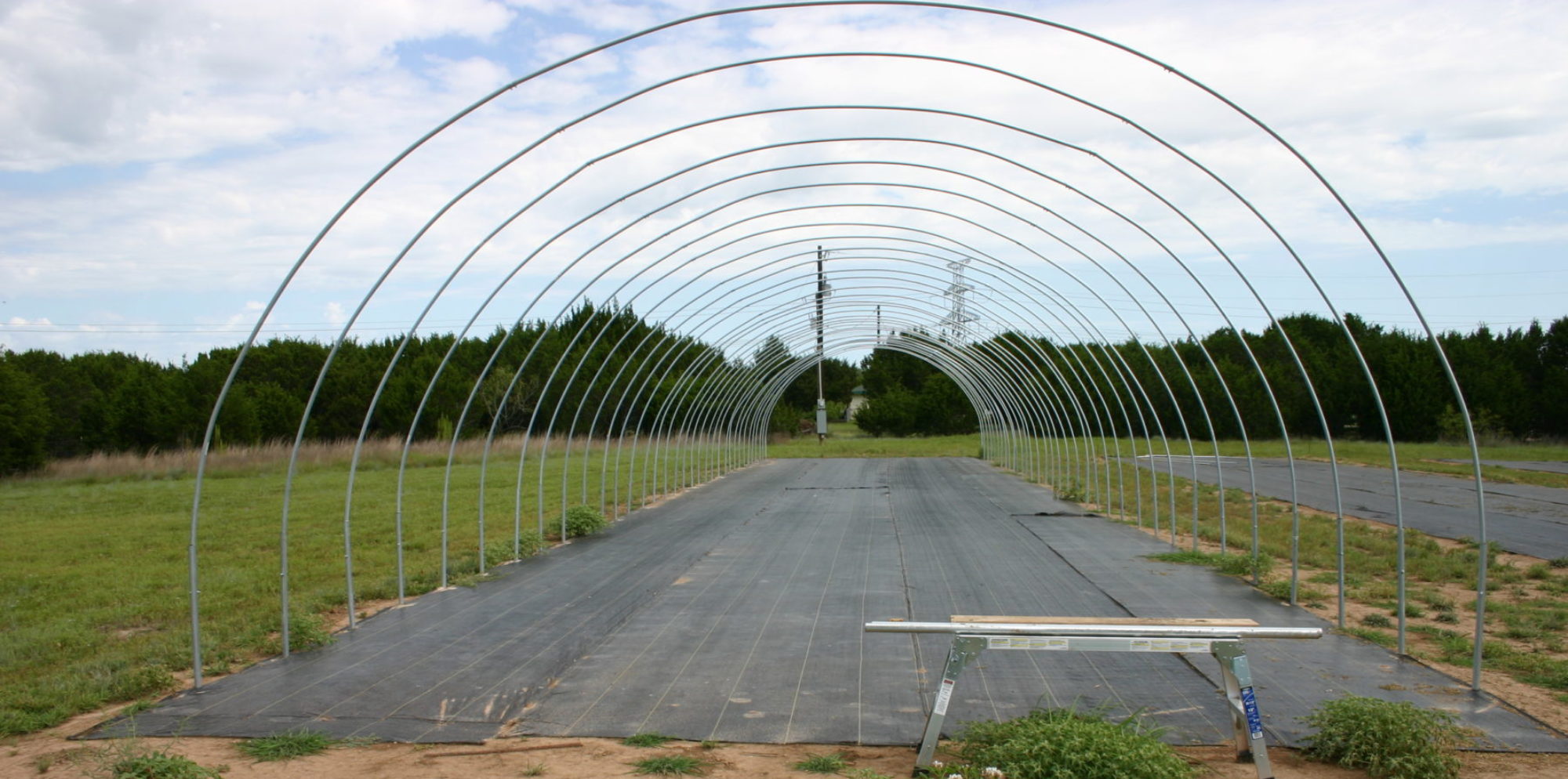10 “hoops” left to complete hoop structures for the first greenhouse.
Form for bending the hoops
Each greenhouse hoop is comprised of 3, steel pipes. Each is carefully placed on a form, bent to create a continuous curve when attached to the other 2 pipes… It seems that it takes two people bending pipe from each end, at the same time to get the curve just right.
Pipe is bending
Pipes were not responding well to the force of a 6-lb. sledge, the ends were bending in… This simple device helped preserve pipe integrity.
Setting the hoop support pipes
This is Ding Dong, foothills for the Texas Hill Country. That means ‘rock’ and a lot of it. Normally, you would be able to sink the support posts using an 8 pound sledge, but not here. To the rescue, on Bosch hammer drill with a 33″ 1 1/8 drill bit supplemented by a 15″ 1 1/2 drill bit.

Using the hammer drill, we were able to drill thru much of the limestone or at least shatter it enough to get the pipes in the ground. When it got really rough we would put the 1 1/2″ bit on to increase the diameter of the hole. We put water down the holes to help make the caliche gummy while be hammered in the poles.

You can see the limestone coming from the hole.

We would fill the hole with water, ream out the excess mixture, add more water, then set the pipe.

There are advantages and disadvantages to height!
Cutting hoop support structure
The greenhouse is designed to be 100 ft long. Requiring supports every 3 feet. Using 1 3/4 galvanized fence posts cut in half I prepped 34 pipes. Because of the wind, we decided to use long support posts. Once the posts are cut, one end is predrilled with a 1/4 hole 12″ from the top to anchor the hoop. 
Don’t forget to remove the burrs from the metal. If it doesn’t cut you it definitely will puncture the greenhouse covering.

Hoop-style greenhouse
In the process of building our first hoop-style greenhouse. Drilled holes 3-ft deep on each side for anchor poles that support/hold up each hoop. Large drill bits, sledge hammers and a little water (water-hose) help “slide” the hoop pole down each 3-ft hole.
Pads are reinforced
After the ‘gale’ winds on the plateau, we found it was necessary to pin the ground cover down every 18 inches.

OOPS… 50 MPH Winds
So I was on high when the ground cover was down… then the front came through, “the Non-Silent Storm” ! The pyrotechnics sitting on the hill top are amazing, the calm before, cool winds, the lightning strikes, then it arrived!
50 MPH winds, torrential rains, then there was the dawn…
“Hello World”… once evaluating the damage, the pins to hold the ground cover need to be 12″ to 18” apart to take on that kind of wind!
Pads are In
Had D&J Tractor lay the foundation for three pads (20′ by 100′). Joey did a great job! Now it’s time to cover the pads with greenhouse woven ground cover. This is definitely a job for more than one person if the wind is blowing more than just a slight breeze else you’ll be ground parasailing.






